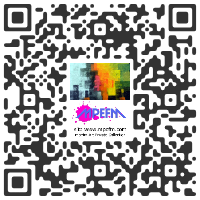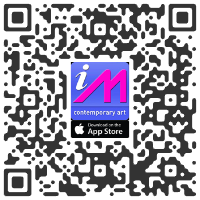"Mapping Black Identities (a space set between a landscape and a bunch of flowers)"Frank Bowling
curated by Erin Dziedzic
presented by the gallery :
Alexander Gray Associates
510 West 26 Street, New York NY 10001 United States+1 212 399 2636 e-mail:
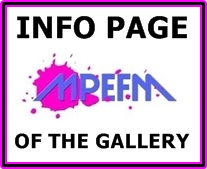

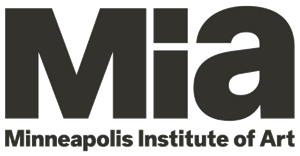
Minneapolis Institute of Art
2400 3rd Ave S, Minneapolis, MN 55404, U.S.A.PHONE: +1 612-870-3000 e-mail:
February 21, 2019 > March 15, 2020
Galleries 373 and 374
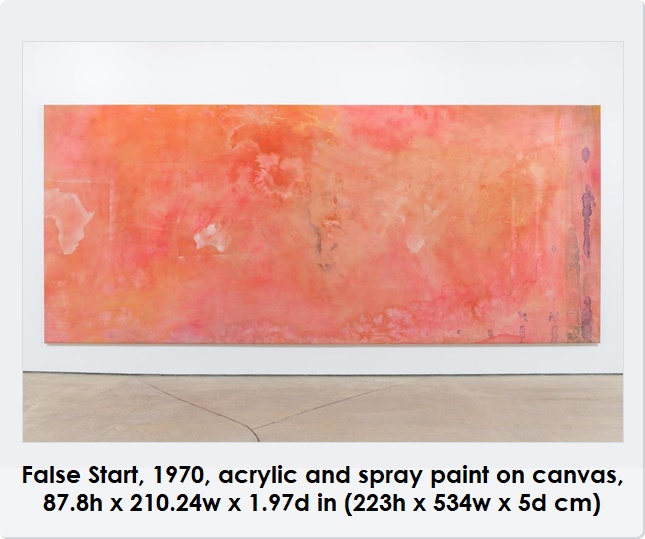 |
Alexander Gray Associates, along with Hales Gallery, London, and Marc Selwyn Fine Art, Los Angeles, is pleased to announce Mapping Black Identities, including Frank Bowling's False Start (1970), at the Minneapolis Institute of Art, Minnesota.
In False Start, Bowling maps an expansive yet intimate geography. Rejecting the graphic formalism of pure abstraction, he structures these paintings around references to post-colonialism and his own Afro-Caribbean roots. The composition of False Start features outlines of the continents of the Southern Hemisphere—Africa, Australia, and South America—rendered in fleshy tones of white and pink. Through its omission of Europe and North America, the image challenges Western-dominated art historical narratives while drawing attention to the expansive footprint of colonialism and imperialism. Works like False Start "began to decolonize the entire archive of the imperial world picture," the art historian Kobena Mercer argues. As Mercer expands, through their combination of personal history and geography, a symbol of both home and exile, "[Bowling's Map Paintings] brushed against the grain of postwar movements that decried oppression in the name of universal Man, opening instead onto a decolonial space of decentering." Presenting painting as subjective, in False Start, Bowling highlights the fallacy of formalism's structural autonomy and universalism while constructing a political cartography centered on social and artistic identity.
The institution's press release follows:
Taking inspiration from Mia's recent acquisition of Frank Bowling's map painting False Start (1970), Mapping Black Identities challenges the notion of Black identity as monolithic. Championing the diverse experiences of artists from America, Africa, and the diaspora, this exhibition seeks to amplify underrepresented voices and create connections around the concept of Blackness in contemporary art across time and place.
Mapping is a colonial practice tied to painful histories of conquest and domination. Here, mapping functions as a powerful way to reclaim spaces—such as the museum—that have traditionally excluded or overlooked work by Black artists.
In False Start, Bowling maps an expansive yet intimate geography. Rejecting the graphic formalism of pure abstraction, he structures these paintings around references to post-colonialism and his own Afro-Caribbean roots. The composition of False Start features outlines of the continents of the Southern Hemisphere—Africa, Australia, and South America—rendered in fleshy tones of white and pink. Through its omission of Europe and North America, the image challenges Western-dominated art historical narratives while drawing attention to the expansive footprint of colonialism and imperialism. Works like False Start "began to decolonize the entire archive of the imperial world picture," the art historian Kobena Mercer argues. As Mercer expands, through their combination of personal history and geography, a symbol of both home and exile, "[Bowling's Map Paintings] brushed against the grain of postwar movements that decried oppression in the name of universal Man, opening instead onto a decolonial space of decentering." Presenting painting as subjective, in False Start, Bowling highlights the fallacy of formalism's structural autonomy and universalism while constructing a political cartography centered on social and artistic identity.
The institution's press release follows:
Taking inspiration from Mia's recent acquisition of Frank Bowling's map painting False Start (1970), Mapping Black Identities challenges the notion of Black identity as monolithic. Championing the diverse experiences of artists from America, Africa, and the diaspora, this exhibition seeks to amplify underrepresented voices and create connections around the concept of Blackness in contemporary art across time and place.
Mapping is a colonial practice tied to painful histories of conquest and domination. Here, mapping functions as a powerful way to reclaim spaces—such as the museum—that have traditionally excluded or overlooked work by Black artists.
 |
Frank Bowling |
mpefm
USA art press release
Opening hours :
Monday: Closed
Tuesday: 10am – 5pm
Wednesday: 10am – 5pm
Thursday: 10am – 9pm
Friday: 10am – 9pm
Saturday: 10am – 5pm
Sunday: 11am – 5pm
The museum is closed July 4, Thanksgiving, Christmas Eve, and Christmas Day.
Free Exhibition
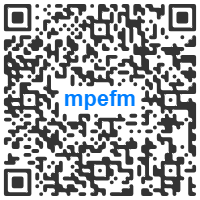
Monday: Closed
Tuesday: 10am – 5pm
Wednesday: 10am – 5pm
Thursday: 10am – 9pm
Friday: 10am – 9pm
Saturday: 10am – 5pm
Sunday: 11am – 5pm
The museum is closed July 4, Thanksgiving, Christmas Eve, and Christmas Day.
Free Exhibition
QR of this press release
in your phone, tablet







